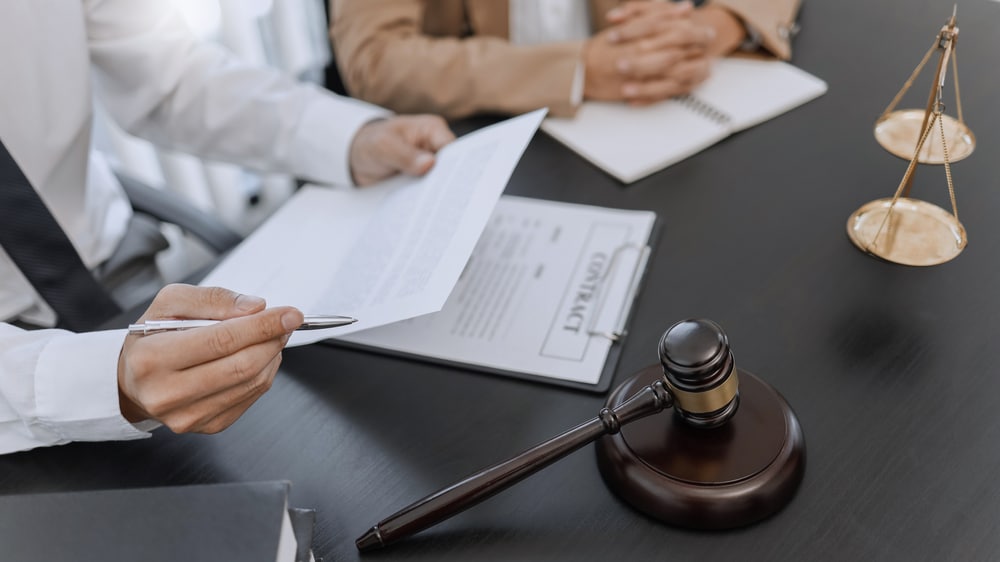If you are facing criminal charges, you may be wondering how to build a strong criminal defense strategy that can protect your rights and freedom. A criminal defense strategy is a plan of action that your criminal justice attorney will use to challenge the prosecution’s case and present your side of the story. A strong criminal defense strategy can help you achieve the best possible outcome in your case, whether it is a dismissal, a plea bargain, or an acquittal at trial.
However, building a strong criminal defense strategy is not a simple or straightforward process. It involves several steps and factors that depend on the specific circumstances of your case. In this blog post, we will explain some of the common steps and factors involved in building a strong criminal defense strategy.
Step 1: Hire an Experienced Criminal Defense Attorney
The first and most important step in building a strong criminal defense strategy is to hire an experienced criminal defense attorney from reputable firms like Rose Legal Services to represent you effectively and professionally. A criminal defense attorney is a lawyer who specializes in defending people accused of crimes. They have the knowledge, skills, and resources to handle all aspects of your case, from investigation to negotiation to litigation.
An experienced criminal defense attorney from help you by:
- Explaining your rights and options under the law
- Advising you on the best course of action for your case
- Conducting a thorough investigation of the facts and evidence
- Identifying and challenging any weaknesses or errors in the prosecution’s case
- Developing and presenting a compelling defense theory and arguments
- Negotiating with the prosecution for a favorable plea deal or dismissal
- Preparing and representing you at trial if necessary
- Appealing your case if you are convicted
Step 2: Remain Silent and Cooperate with Your Attorney
The second step in building a strong criminal defense strategy is to remain silent and cooperate with your attorney. This means that you should not talk to anyone about your case, especially not to the police, the prosecution, or the media. Anything you say can be used against you in court, so it is best to exercise your right to remain silent until you have consulted with your attorney.
You should also cooperate with your attorney from by:
- Providing them with all the relevant information and documents related to your case
- Being honest and truthful about everything that happened
- Following their instructions and advice
- Keeping them updated on any changes or developments in your situation
- Communicating with them regularly and promptly
- Trusting them to act in your best interest
Step 3: Review the Evidence and the Charges
The third step in building a strong criminal defense strategy is to review the evidence and the charges against you with your attorney. The evidence is the information and materials that the prosecution will use to prove that you committed the crime. The charges are the specific allegations that the prosecution will make against you in court.
You and your attorney should review the evidence and the charges carefully and critically, looking for any:
- Inconsistencies or contradictions
- Gaps or missing pieces
- Errors or inaccuracies
- Biases or prejudices
- Violations of your rights or due process
You should also review the evidence and the charges from different perspectives, such as:
- The prosecution’s perspective: How will they use the evidence and the charges to convince the judge or jury that you are guilty?
- The defense’s perspective: How will you use the evidence and the charges to cast doubt on the prosecution’s case or support your defense theory?
- The judge’s perspective: How will they evaluate the evidence and the charges based on the law and their discretion?
- The jury’s perspective: How will they interpret the evidence and the charges based on their common sense and emotions?
By reviewing the evidence and the charges from different perspectives, you can anticipate how they will affect your case and plan accordingly.
Step 4: Develop a Defense Theory and Arguments
The fourth step in building a strong criminal defense strategy is to develop a defense theory and arguments with your attorney. A defense theory is a logical explanation that shows why you are not guilty of the crime or why you should not be held responsible for it. A defense argument is a specific point that supports your defense theory or refutes the prosecution’s case.
There are different types of defense theories and arguments that you can use depending on your case, such as:
- Affirmative defenses: These are defenses that admit that you committed the act, but claim that you had a valid reason or justification for doing so, such as self-defense, necessity, duress, insanity, or entrapment.
- Negative defenses: These are defenses that deny that you committed the act, or claim that the prosecution has not proven that you did so beyond a reasonable doubt, such as alibi, mistake, identity, or lack of evidence.
- Procedural defenses: These are defenses that challenge the legality or validity of the evidence or the charges, or claim that your rights or due process were violated, such as illegal search and seizure, coerced confession, improper arrest, or double jeopardy.
Step 5: Prepare for Trial or Negotiation
The fifth and final step in building a strong criminal defense strategy is to prepare for trial or negotiation with your attorney. A trial is a formal proceeding where the prosecution and the defense present their cases to a judge or jury, who will then decide your guilt or innocence. A negotiation is an informal process where the prosecution and the defense try to reach a mutually acceptable resolution of your case, such as a plea bargain or a diversion program.
You and your Rose Legal Services in St. Louis should prepare for trial or negotiation by:
- Gathering and organizing all the relevant evidence and documents
- Researching and studying the applicable law and precedents
- Selecting and interviewing potential witnesses and experts
- Practicing and rehearsing your testimony and cross-examination
- Drafting and filing any motions or objections
- Evaluating and weighing the risks and benefits of each option
- Making and communicating your decisions and preferences
Conclusion
Building a strong criminal defense strategy is a complex and challenging process that requires the expertise and assistance of an experienced criminal defense attorney. By following the steps outlined in this blog post, you can increase your chances of achieving a favorable outcome in your case.



